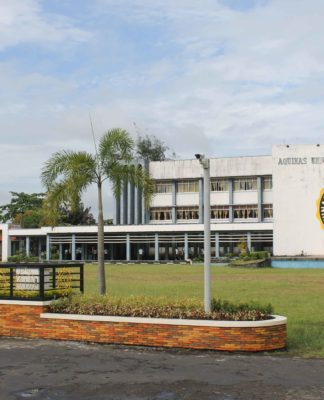CEBU CITY —Proposed amendments to the Reproductive Health (RH) bill are unacceptable as the measure —which seeks billions of pesos in taxpayer money for a nationwide contraception program — must be rejected in its entirety, a “pro-life” congressman said.
“Regardless of what House bill number, name, or title you call it (RH bill), once this bill is passed, it will be implemented in accordance with the intent of people who stood behind it and pushed it all these years,” Davao Rep. Karlo Alexei Nograles said at the Philippines for Life 2011 Congress organized by Human Life International (HLI)-Pilipinas.
“That is why we must reject the RH bill in its entirety, regardless of content and form,” he said.
Nograles described the “voluntary amendments” being offered by the bill’s proponents at the House of Representatives as “questionable.”
One of the proposed amendments is a supposed option for parents to take their children out of sex-education classes. Still, all schools, including those run by the religious, must teach a state-prescribed sex-ed curriculum, or face sanctions.
The paragraph that reads “parents shall exercise the option of not allowing their minor children to attend classes pertaining to reproductive health and sexuality and education” will supposedly be placed in Section 16.
“A promise to amend is not equivalent to the actual amendment,” Nograles said.
RH bill advocates have also vowed to remove a contentious provision punishing those who spread “misinformation.” Pro-life leaders, however, said introducing such a provision in the first place was a pro-RH strategy to force the hand of those against the bill.
Nograles pointed out that the supposed amendments “do not include the Senate, so these amendments may still be found in the final Senate version [of the RH bill].”
Former senator Francisco Tatad, meanwhile, said the RH bill has “no place in a constitutional and democratic society” because it curtails the right of Catholics to practice their beliefs.
“There is no attempt on the part of Catholics to impose their belief on non-Catholics,” he said. “We are not trying to stop anyone who wants to contracept for even now, they are free to contracept and sterilize themselves.”
Tatad argued that state prescription of the use of contraceptives, using taxpayers’ money, is a practice that could only be done in totalitarian and communist countries.
“The decision that you must use contraceptives in one form or another has already been made for you by the authors of the bill,” he said. “They want us to accept from Congress what is contrary to our faith.”
Former Manila mayor Jose “Lito” Atienza, meanwhile, said people must not disengage themselves from politics, but rather get involved in it to guard against politicians campaigning for the foreign-backed RH bill.
“Let’s stop the notion that ‘politics is dirty, politicians are bad, therefore I don’t want to get involved with it.’ If the good people do not immerse themselves in governance, in politics, then the bad [people] will always run this world,” Atienza said.
The forum ended with a Mass led by Butuan Bishop Juan de Dios Pueblos, who said Catholics should work hard so that from the “culture of death comes the culture of life, from culture of profit, the culture of service; and from culture of individualism, the culture of communitarian life.”
HLI-Pilipinas director Dr. Rene Josef Bullecer, organizer of the conference, said his group will be conducting nationwide anti-RH bill forums for the youth next year.
The conference at Summit Circle Hotel was participated in by representatives of Pro-Life Pilipinas, Ang Kapatiran Party, and around 10 archdioceses and 31 dioceses all over the country. This year’s event was attended by 216 participants.
Other speakers in the forum were Msgr. Cris Garcia; newspaper columnist Valeriano “Bobit” Avila; Dr. Ligaya Acosta, executive director of HLI Asia and Oceania; Antipolo Bishop Gabriel Reyes, D.D.; Prof. Roberto de Vera of University of Asia and the Pacific; and Fr. Melvin Castro, executive secretary of the Episcopal Commission on Family and Life of the Catholic Bishops’ Conference of the Philippines. Gervie Kay S. Estella















